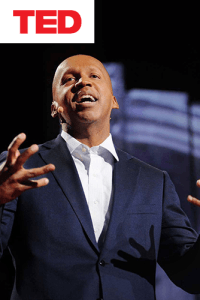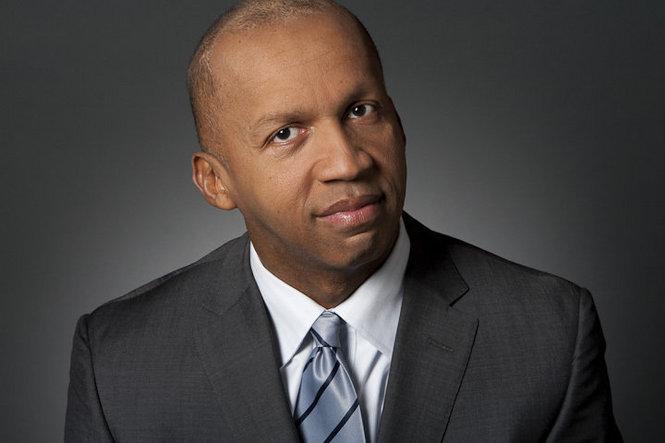We Need to Talk About an Injustice Summary

4 min read ⌚
 We live in a world of progress.
We live in a world of progress.
However, this progress is purely technological. To wholly progress as a society, on the other hand, we need to work on other aspects.
We explain those aspects in the summary of “We Need to Talk About an Injustice” TED talk.
Who Should Watch “We Need to Talk About an Injustice”? And Why?
Lawyer Bryan Stevenson sparked an interest in his TED audience reminding them that technological progress means nothing when people still suffer from human rights violations and are a subject to discrimination.
We recommend “We Need to Talk About an Injustice” to everyone who has even the slightest desire to eliminate injustice and make the world a better place.
About Bryan Stevenson
 Bryan Stevenson is the founder of the Equal Justice Initiative, an organization which has made it its mission to eliminate discrimination against African-Americans from the US justice system.
Bryan Stevenson is the founder of the Equal Justice Initiative, an organization which has made it its mission to eliminate discrimination against African-Americans from the US justice system.
“We Need to Talk About an Injustice Summary”
When now-lawyer Bryan Stevenson was a little boy, his grandmother made him promise that he would take care of his mother, that he would avoid alcohol and always do the right thing, even in adverse situations.
He lived his life according to these three requests, and as an adult, he believes that this conversation he once had with his grandmother helped him form and define his identity.
In other words, Bryan Stevenson believes that talking about things, helps to incorporate those things into your identity.
So, when Americans steer away from discussions about the imbalances in the criminal justice system, the national identity is at risk.
In the present, more than two million people lead their lives in US prisons.
A not so fun fact is that some of these prisoners are children. America is the only nation in the whole world that sentences teenagers to life in prison, without the possibility of parole.
In all major US cities, around half of black men are in prison, on probation, or on parole.
Another thing that not many people know is that in some states, people who have a criminal background and record, permanently lose their right to vote. By 2022 in Alabama, “the level of disenfranchisement will be as high as it’s been since before the passage of the Voting Rights Act.”
What does this tell you about American society? Is America great, as we all believe it is?
Contrary to what you may believe, wealth, not guilt, is the one that decides who goes to jail and who walks away free.
Don’t you believe us?
Just look at the statistics: one in nine people put on death row are later found out to be not guilty.
And yet, everyone ignores these issues, and no one speaks of such injustices.
America’s history is filled with terrorism toward African-Americans, but talking about it is taboo.
However, as we already said, avoiding open discussions about this past violence is stopping the progress of the “truth and reconciliation” process, which people and nations need to go through in order to heal and grow.
For example, the death penalty would be “unconscionable” in Germany as we know it today, particularly in the event that it was meted predominantly to Jewish individuals, given the country’s dark history.
In contrast, the states of the Old South still have the death penalty in function, which allotted excessively to black males, on the very same ground that holds the assortments of lynching victims.
We gave you all these information in order to put our point across the US’s identity is in danger.
Technological advances and innovations make our lives more manageable, but they alone cannot gauge progress.
In fact, society’s treatment of less fortunate members is far more critical.
All humans have right to a justice system that treats them with dignity.
Stevenson, for example, once placed a motion in court to have his 14-year-old black client treated and tried “like a privileged, white 75-year-old corporate executive.”
Stevenson’s request was not received well in the courtroom. But then, an old black man, who was a janitor there, approached him and told him to hold on and keep his “eyes on the prize.”
So, if we hold on as well, we may reach the point where we have “visions of humanity, compassion, and justice.”
Key Lessons from “We Need to Talk About an Injustice”
1. The Reality of Prisons
2. The Need for Open Discussions
3. The Important Milestones to Progress
The Reality of Prisons
Some of the prisoners are children. America is the only nation in the whole world that sentences teenagers to life in prison, without the possibility of parole.
In some states, people who have a criminal background and record, permanently lose their right to vote.
The Need for Open Discussions
Avoiding open discussions about this past violence is stopping the progress of the “truth and reconciliation” process, which people and nations need to go through in order to heal and grow.
The Important Milestones to Progress
Technological advances and innovations make our lives more manageable, but they alone cannot gauge progress.
In fact, society’s treatment of less fortunate members is far more critical.
Like this summary? We’d Like to invite you to download our free 12 min app, for more amazing summaries and audiobooks.
“We Need to Talk About an Injustice” Quotes
We have a system of justice in the United States that treats you much better if you’re rich and guilty than if you’re poor and innocent. Wealth, not culpability, shapes outcomes. Share on X In many parts of this country, and certainly in many parts of this globe the opposite of poverty is not wealth. In too many places, the opposite of poverty is justice. Share on X The politics of fear and anger have made us believe that these are problems that are not our problems. We’ve been disconnected. Share on X The moral arc of the universe is long, but it bends toward justice. Share on XOur Critical Review
We cannot call ourselves “evolved” until we begin to fight for human rights and basic human dignity actively. This is the paraphrased thesis that you can hear discussed in “We Need to Talk About an Injustice,” which we believe is well researched and grounded discussion of our current reality.








